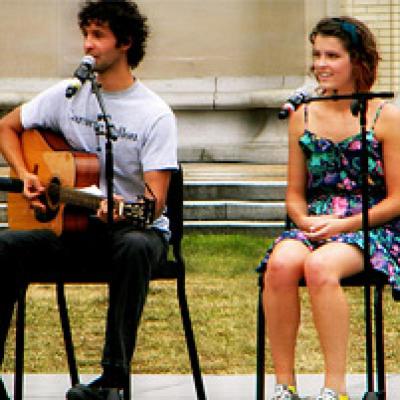Dow and Settles Investigate Songwriting Chemistry

A hit song is often the product of co-writers who have great chemistry. But the elements that make the chemistry great aren’t always apparent.
Researchers at Carnegie Mellon University analyzed an online songwriting community to shed light on this subject, and what they discovered may surprise you.
The technique could one day further social science research involving Big Data.
Based on four years of data collected though an international songwriting challenge called February Album Writing Month, or FAWM, the CMU team found that common interests or skills do not cause collaborators to seek each other out.
The researchers found, for instance, that two people were actually less likely to collaborate if they liked the same songs. More likely would be a writer in one genre seeking out a collaboration with someone who works in a less familiar genre.
“Creative collaborators are trying to expand their horizons, so they seek out collaborators with complementary interests and skills,” said Steven Dow, assistant professor in the Human-Computer Interaction Institute, who conducted the study with Burr Settles, a post-doctoral fellow in the Machine Learning Department.
Among other findings, FAWM participants — or “fawmers” — who share the same social status in the online community tend not to collaborate with each other as much as those who are slightly more (or slightly less) prominent.
And, contrary to some previous findings, if one collaborator performs the bulk of work, both feel unsatisfied, not just the one pulling the load.
Settles and Dow employed a relatively new technique for analyzing the FAWM collaboration data set, which included 39,103 songs and 6,116 participants, as well as song tags, locations and forums.
The “path-based regression” technique they employed could be a useful tool for additional social science research involving Big Data, they said. The study also included a survey of FAWM participants.
Their findings will be presented at CHI 2013, the Conference on Human Factors in Computing Systems, in Paris, France, April 27–May 2.
The Machine Learning Department and Human-Computer Interaction Institute are part of CMU’s School of Computer Science — one of the world’s premier institutions for computer science research and education.
From the beginnings of “thinking computers” through today’s intelligent tutors, our award-winning faculty, researchers and students are internationally known for consistently developing new methods and technologies that have an enduring impact on academic, scientific and commercial endeavors.

